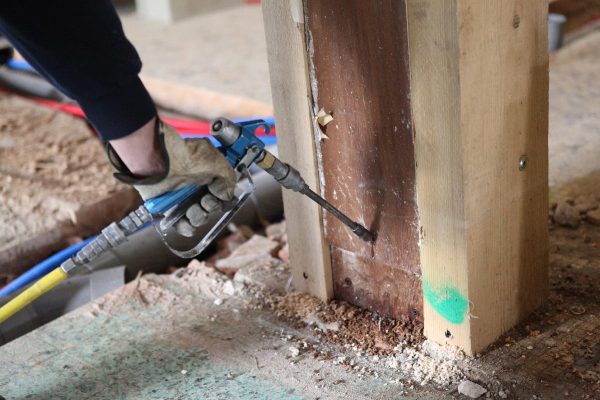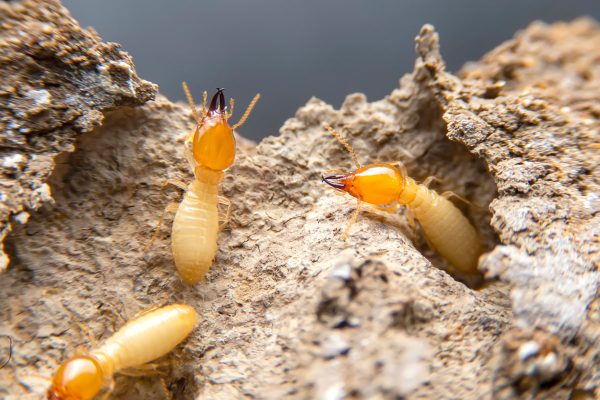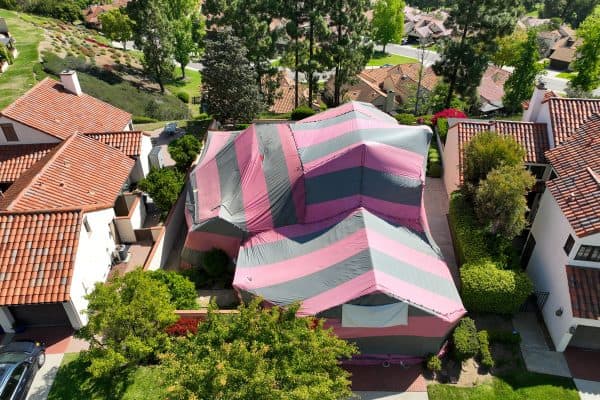There are so many natural ways of killing termites. And all of them undoubtedly work. However, they all have limitations. Some can work excellently, and some are less effective. In this case, do you think Epsom salt can kill termites? Since we are also curious about that particular question, we have conducted thorough research and will share with you the answer.
Epsom salt can equally work as table salt does; this salt can also kill termites. However, it has some limitations. Termites usually bypass salt because it has no cellulose. And salt will only be effective if termites consume it.
If you want to know more about using salt to eliminate termites, it would be best to keep reading. Aside from that, we will provide you with other alternatives for killing those stubborn pests. Let's delve into the details!
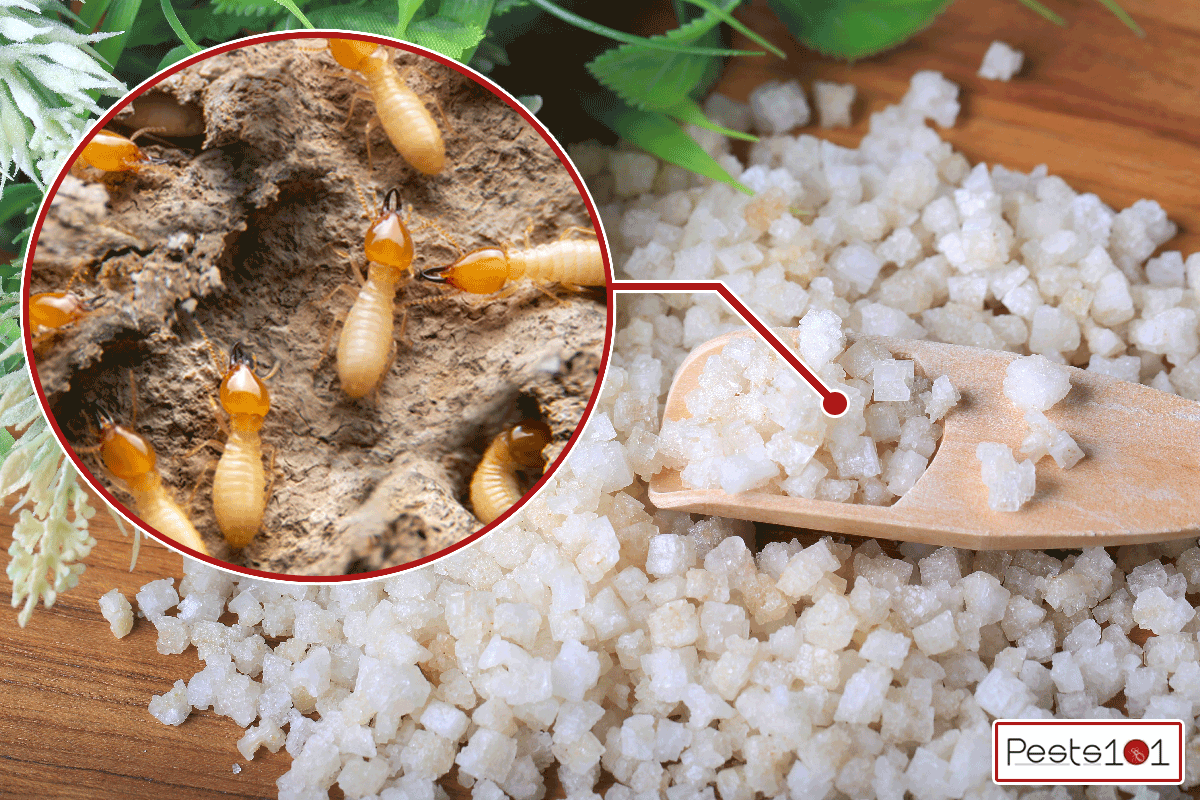
What Are The Types Of Salt That Kill Termites?
Many people are wondering if Epsom salt kills termites. Well, it's just as effective as table salt. You can drive Epsom salt into mud tubes and holes in walls, ceilings, and floors to kill these pests.
However, if you have a termite infestation in your furniture or wood, you should avoid utilizing both types of salt. Because salt crystals infiltrate and weaken wood fibers, causing the wood to deteriorate.
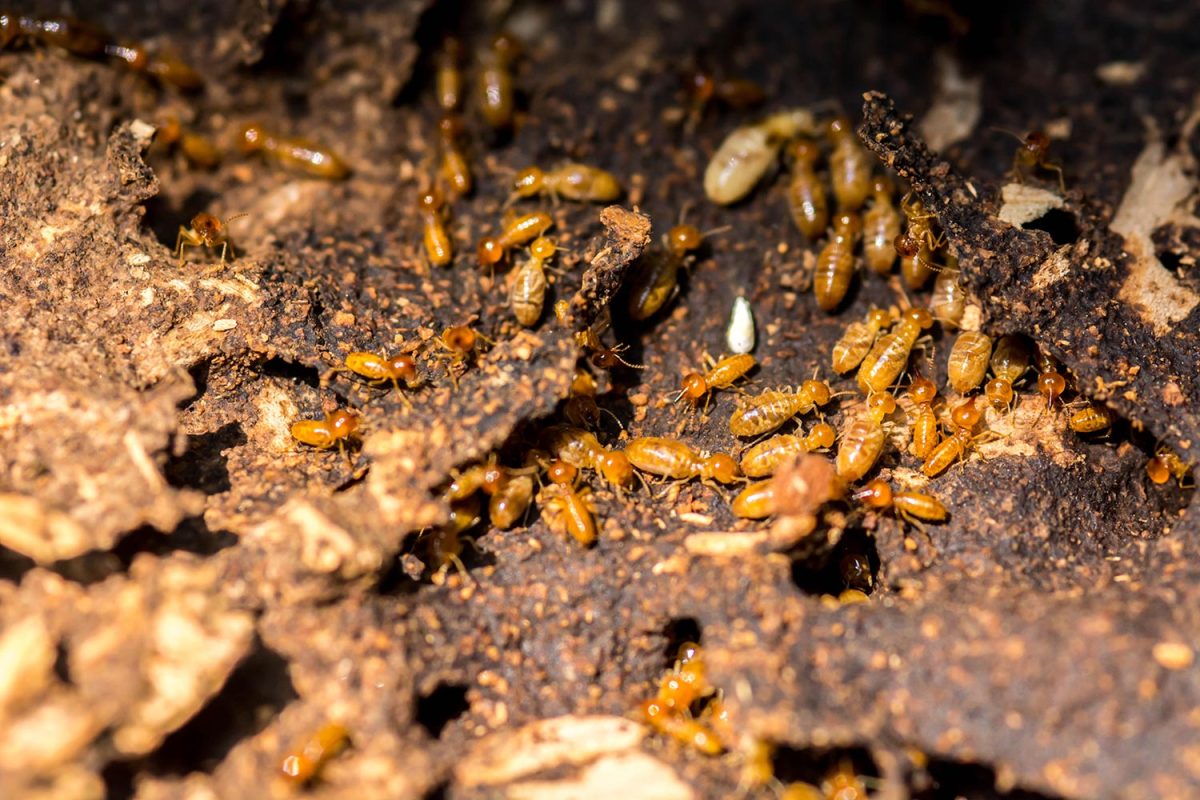
It is better to utilize boric acid or borate salt for wood infestations since both approaches can eliminate termites concealed anywhere in the wood. That is because they will entirely soak up into the wood fibers, and termites who eat it die within two to three days. These are both wood preservatives and will not harm any wood.
Natural treatments work at various levels depending on the type of infestation. Be careful not to use Epsom salt or any kind of salt to treat plants or soil since it dehydrates and kills them.
Baking soda is an excellent natural remedy for termite infestations on plants. Because of its gentle nature, it does not hurt plants while successfully eliminating those annoying termites.
Check out this Epsom salt on Amazon.
How Long Does Salt Take to Kill Termites?
The salt includes chloride and sodium. Those elements will absorb fluids from the termite's body when they consume it. The termite will dehydrate and eventually die.
Termites do not respond to natural methods instantly; it takes time. Using salt isn't a fast killing method; it takes 24 to 48 hours for termites to die. Additionally, the amount of salt a termite consumes will determine how quickly its death is. The termite, however, will certainly die if it swallows any salt.
Remember that salt will only kill visible termites; their colonies are tough to access. Their hives are hidden far away from the contaminated area. Furthermore, salt isn't effective against all termite infestations. It's effective against small-scale infestations.
How To Use Salt Cardboard Bait To Eliminate Termites?
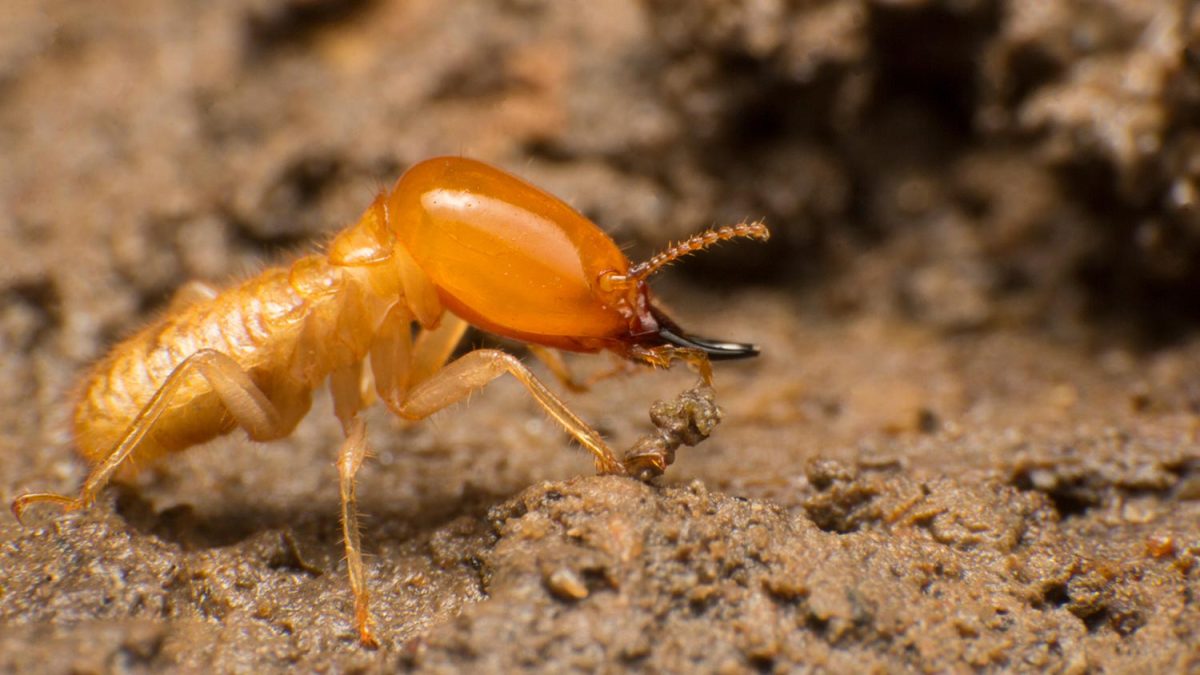
Salt and water are frequently mixed and injected into termite tunnels or mud tubes. And this procedure works. However, it does not kill a significant number of termites.
Because salt contains no cellulose, termites usually try to eat it. Termites will not die unless they consume it. They die when it dehydrates their bodies.
However, we do not advocate this strategy to you because it will produce salt stains in the area where they ingest it, which will detract from the beauty of your property. The salt stains can be difficult to clean away.
Regarding termites, an excellent approach to utilize cardboard baited with saltwater. It will not degrade the appearance of ceilings or walls while destroying vast numbers of termites.
Step 1:
To begin, heat the water while simultaneously adding salt; bear in mind that the more salt you add, the better; however, you must completely dissolve it. Soak cardboard strips in the salt water, then place them where you think the termites are.
Step 2:
Remember that these cardboard baits should not dry out; moisten them with salt water multiple times a day. Many termites will accumulate on those cardboard baits after 48 hours. Additionally, they will consume the cardboard and transport it to their hives.
Step 3:
The termites from the hidden hive will devour and die when they ingest this wet cardboard. Termites will be entirely gone in two to three days.
What Is The Advantage Of Using Salt For Pest Control?
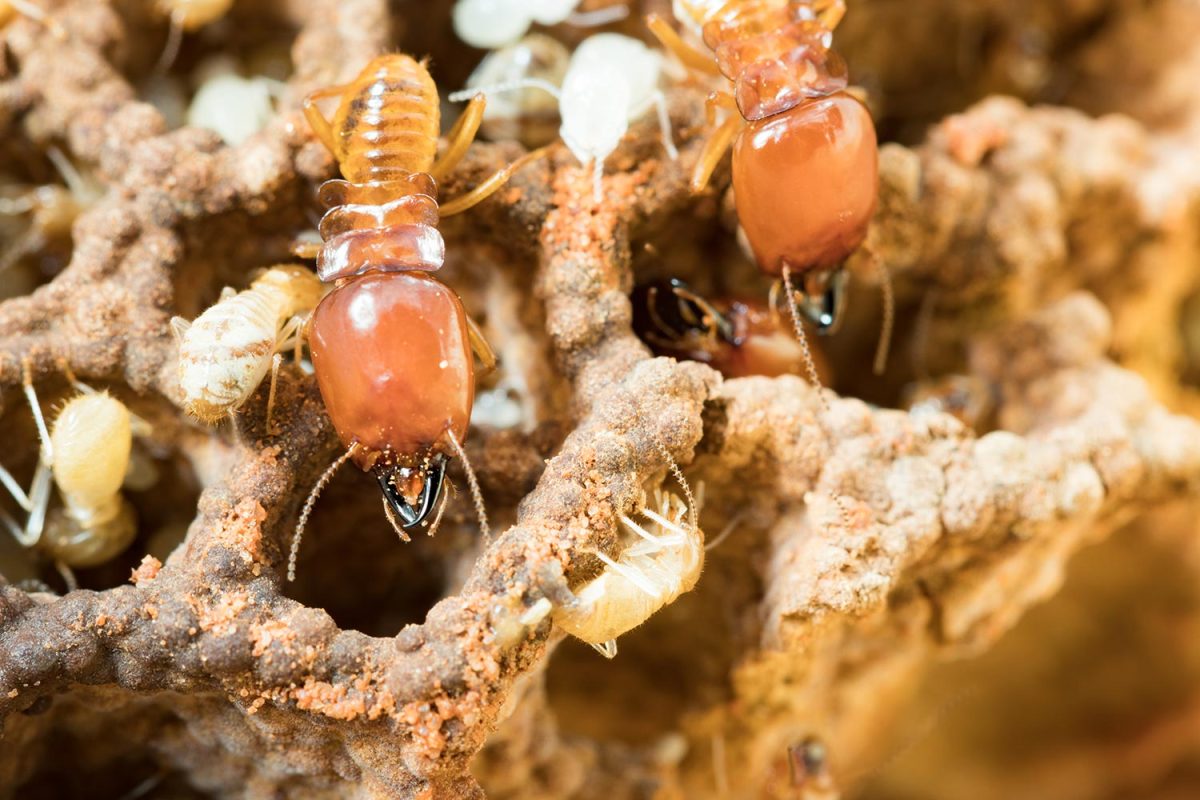
Salt is widely recognized as a readily available dietary source.
It makes it plentiful and suitable for various applications, including termite treatment. Its main benefit over other termite control treatments is that it is entirely harmless.
Because it is an environmentally safe product, there is no risk of poisoning or allergies in humans or pets.
Additional Natural Termite Exterminiation Methods
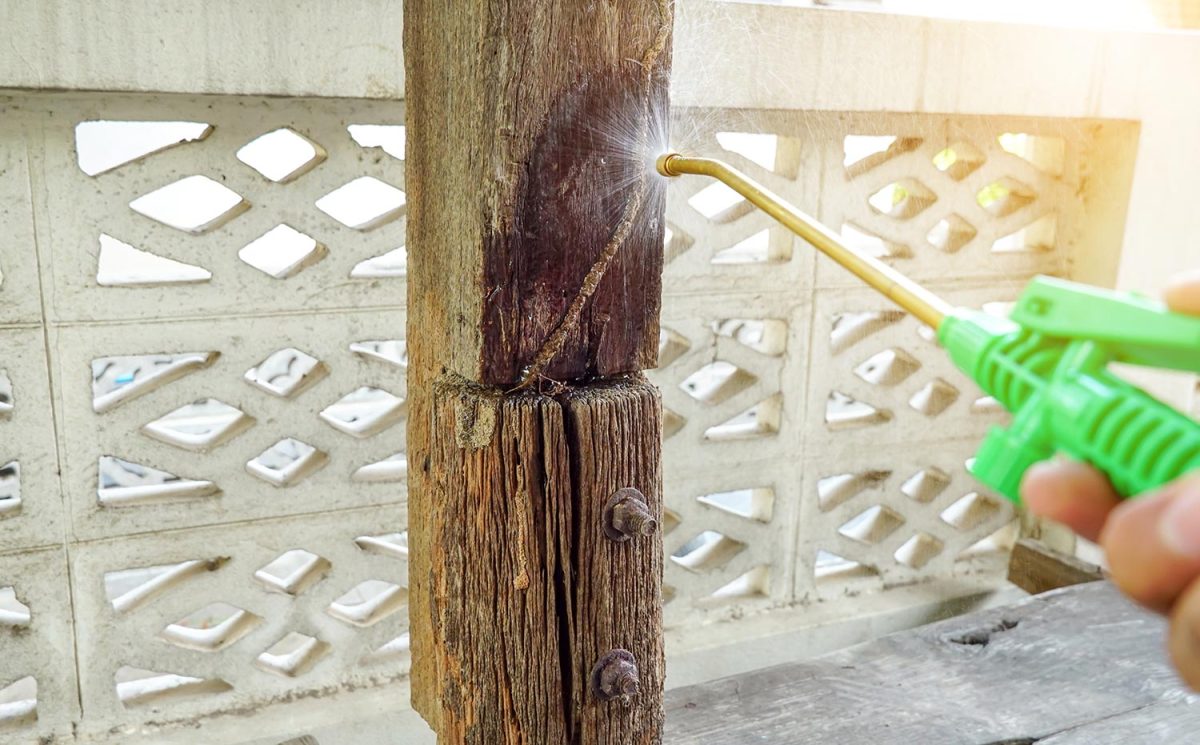
Many treatments claim to completely eliminate termites, leaving you dissatisfied with a new wave of adversaries to contend with. If you want to avoid using commercial solutions and tackle the chore on your own, here are some natural ways to get rid of termites that truly work.
1. Boric Acid
As mentioned above, Boric acid is a natural insecticide and wood preservative. When termites consume boric acid, the acid stops them from extracting nutrition from whatever they eat, no matter how much they consume.
This acid is generally in a powder form that you can spray directly or dilute with water. To use it, please wear a mask and goggles.
Although it is best to use outside, you can use it indoors by mixing one teaspoon of acid with one cup of warm water in a spray bottle. Simply shake the bottle until the substance is completely dissolved, then use as needed.
Check out this Boric acid on Amazon.
2. Cayenne Pepper
Cayenne pepper is termite's worst nightmare. It contains Capsaicin, an active ingredient that makes it extremely hot and spicy. This chemical will kill termites spontaneously by causing significant nerve damage.
If you have termite problems in a small area, sprinkle the pepper liberally in that specific location and repeat until you completely eliminate the termites.
3. Nematodes
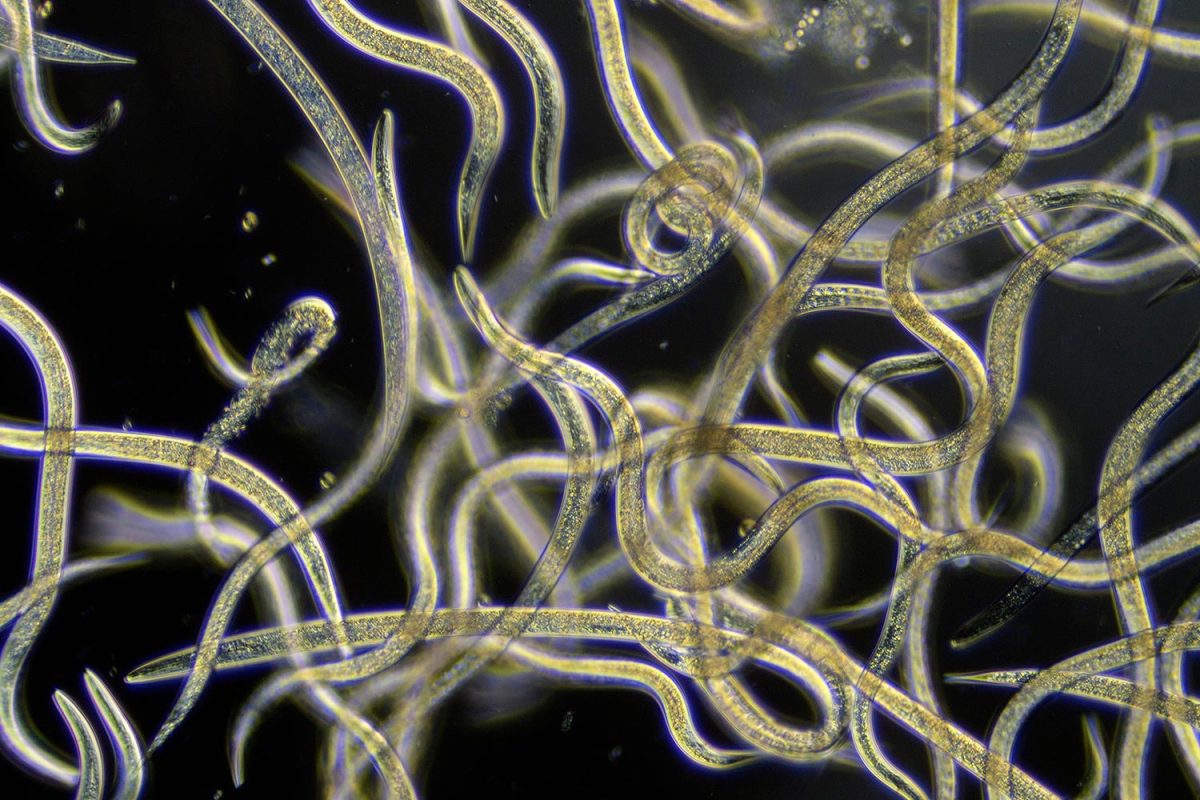
Nematodes or roundworms are not actual worms and are so small that they are invisible to the naked eye. Termites are one of the pest species that these worms can combat. Nematodes attack and kill their victim by injecting virulent germs or parasitizing and eating the host.
These worms cannot destroy wood, are non-toxic to humans and their pets, and die once the task is over.
To use, mix the worms into a bucket of water and gently blend until the mixture gets even. Fill a spray bottle with the mixture and spray the infested area. The Nematodes will then propagate with the water sinking into the wood. It should be enough to spray once a day.
Before you choose this method, ensure you conduct research beforehand. Nematodes come in a variety of forms to combat various pests.
4. Diatomaceous Earth
This sand is non-toxic to humans but is highly hazardous to pests. Diatomaceous earth has razor-sharp particles due to the sharp edges of the diatoms that make up this substance.
When these edges come into touch with the pest, they cut through its outer coat, allowing moisture to escape. This pesticide can absorb moisture and draw it out. An insect can't thrive due to its sensitive water balance.
You can disperse this substance indoors and outdoors, as well as during meals.
Check out this diatomaceous earth on Amazon.
5. White Vinegar
Simply blend a half cup of vinegar and the juice from two lemons. Fill a spray bottle with this mixture. It is the simplest way to disperse it throughout the infested areas. Spray this mixture into the mud holes that serve as entrances or onto the mounds themselves.
Any wooden structures, fences, or corners where termites might get into are also suitable places to spread this solution. It will sink deep into the cracks and grooves if used properly to kill the termites.
6. Using Neem Oil to Get Rid of Termites
Neem oil will alter the reproductive system of termites when they eat it. It causes the termite to lose track of time and fail to eat and mate. Because the older termites die, this restricts the laying of eggs, which keeps the termites from expanding.
Additionally, termites dislike the smell of this unique compound. Hence it protects the treated regions.
You can make your blend by obtaining raw or crude neem oil first. Then use liquid soap to emulsify the oil. You will need to create a mixture of 34 ounces of water, 3 ounces of liquid soap, and 7 ounces of neem oil.
Ensure you add the soap first into the water, then the neem oil. Pour the mixture into a spray bottle and use it as needed.
Make sure to utilize this solution immediately after preparing it because the contents begin to degrade after around 8 hours.
Check out this Neem oil on Amazon.
In Summary
If a small-scale termite infestation exists on your property, you can use Epsom salt to get rid of them. Since we have also provided you with other natural options to get rid of termites, you may choose what is available in your home or what fits your needs.
We hope you find this post helpful. If you have additional questions, please leave a comment below. And if you want to read further, you might want to visit our website or check these posts below:
Do Bonide Systemic Granules Kill Spider Mites?





